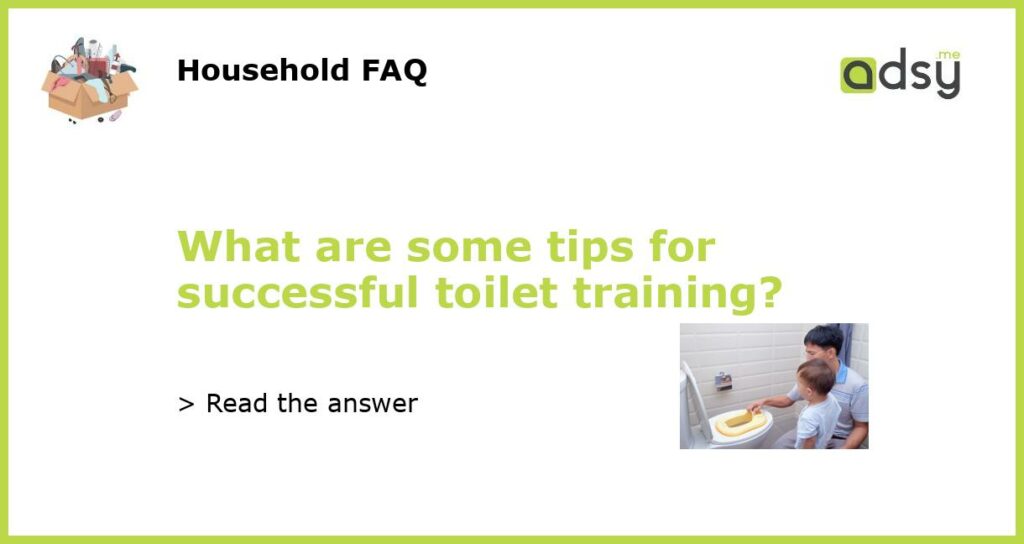Tips for Successful Toilet Training
Toilet training is a significant milestone in a child’s development, and it can be an exciting yet challenging time for both parents and children. Every child is different, and the process of toilet training may vary, but there are some general tips that can help ensure a successful toilet training experience.
Start at the Right Time
The timing of toilet training is crucial. It is important to wait until your child is physically ready, both in terms of bladder and bowel control, and mentally ready to understand and cooperate with the process. Signs of readiness include staying dry for longer periods, showing interest in the toilet or potty, and having regular bowel movements. Starting too early can lead to frustration and setbacks, so it’s essential to wait for the right timing.
Create a Positive Environment
Toilet training should be approached with a positive mindset and create a supportive environment for your child. Avoid pressuring or punishing your child for accidents or setbacks, as this can create anxiety and resistance. Instead, make toilet training a positive and encouraging experience. Praise and reward your child for their efforts, even for small successes. Create a comfortable and welcoming space in the bathroom with child-sized toilet or potty and fun accessories like books or toys.
Establish a Routine
A consistent routine is key to successful toilet training. Establish regular bathroom times, such as after meals or before bedtime, and encourage your child to sit on the toilet or potty during these times. Use a timer or reminder to help your child remember to use the bathroom. Consistency is crucial, so be patient and persistent in sticking to the routine, even if there are accidents along the way.
Practice Good Hygiene
Teaching your child good hygiene habits is an essential aspect of toilet training. Teach them to wash their hands thoroughly with soap and water after using the toilet. Demonstrate and explain the importance of good hygiene practices, such as wiping properly and flushing the toilet. Encourage your child to be independent in these tasks, but also provide assistance and supervision as needed. Reinforce the importance of cleanliness and hygiene throughout the toilet training process.
Be Prepared for Setbacks
It is normal for there to be setbacks and accidents during toilet training. Your child may initially resist or have trouble understanding the process, and accidents will happen. It’s important to approach setbacks with patience and understanding. Avoid getting frustrated or angry with your child, as this can create negative associations with toilet training. Instead, calmly clean up accidents and reassure your child that it’s okay. Recognize that setbacks are a part of the process and continue to provide support and encouragement.






